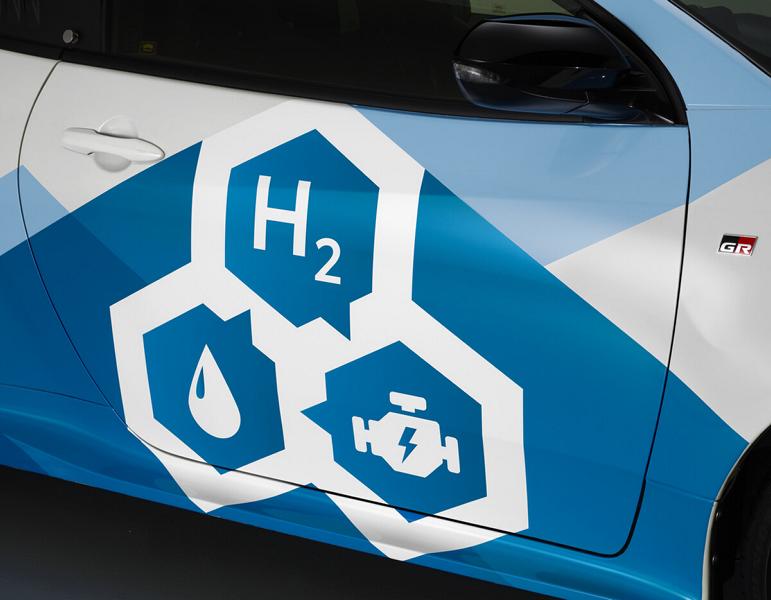Fuel is the lifeblood of engines and plays a central role in operation and maintenance. The type of fuel used can have far-reaching effects on a variety of aspects of engine operation, including the Performance, the Efficiency and ultimately also that Lifespan. Various Types of fuel Each has its own specific properties and advantages that affect driving behavior and the Maintenance can impact. This article is intended to provide a brief overview of the different types of fuel and their influence on engine performance. The aim is to provide an understanding of the complexity and importance of fuel choice. Both traditional and modern alternative fuel options are considered.
different types of fuel
- Petrol: Gasoline, also known as gasoline in some regions, is the most widely used fuel for passenger cars. The quality of gasoline is often measured by the octane number, which is the knock resistance of fuel. Higher octane fuels, often referred to as “Super"Or"Premium“, enable more efficient combustion, which is particularly important in high-performance engines. The latter rely on precise fuel combustion to achieve optimal performance and efficiency. Lower octane ratings in such engines can lead to “Tapping“ lead to unwanted and inefficient combustion that can cause engine damage.
- Diesel: Diesel fuel is primarily used in commercial vehicles, but also in passenger cars. Diesel produces more torque compared to gasoline, making it ideal for heavy loads and long distances. Modern diesel engines are with High pressure injection systems equipped, which enable a finer and more efficient fuel delivery. This leads to better combustion and higher efficiency. However, diesel engines are more susceptible to Pollution in the fuel system, which requires regular maintenance and the use of high quality fuels.
less common, ethanol & E85
- ethanol and E85: Ethanol, an alcohol derived from plant materials such as corn and sugar cane, is often used as gasoline mixed into increase octane and reduce emissions. E85, a mixture of 85% ethanol and 15% gasoline, will be in special Flex fuel vehicles used. While ethanol increases octane and improves combustion efficiency, it has a lower energy content than pure gasoline, resulting in slightly increased fuel consumption. In addition, ethanol can corrosive have an effect, which is why only vehicles designed to operate with high ethanol content should use E85.
- Biodiesel: Biodiesel, made from vegetable oils or animal fats, is often mixed with diesel fuel. Biodiesel is more environmentally friendly than conventional diesel, but can gel at low temperatures and clog filters. Vehicles that run on biodiesel therefore often require special fuel filters and regular maintenance, to avoid problems.
Hydrogen & Electricity
- Hydrogen: Hydrogen is used as fuel for fuel cell vehicles, which produce electrical energy by reacting hydrogen with oxygen. The technology produces no direct emissions, except water. Fuel cell vehicles have high energy efficiency and short refueling times. However, the infrastructure for hydrogen refueling stations is limited and production can be energy-intensive.
- Electricity: Electric vehicles (EVs) use electrical energy stored in batteries. EVs are efficient, emission-free and have fewer moving parts than combustion engines, resulting in lower maintenance costs. The challenges with electric vehicles lie in the limited range, longer charging times compared to refueling and the need for charging infrastructure.
Conclusion on the types of fuel: Overall, fuel choice has a direct impact on engine performance, efficiency and maintenance. It is therefore important to follow the manufacturer's recommendations regarding fuel type and maintenance required to optimize vehicle performance and maximize engine life. With advances in fuel technology and increasing focus on sustainability, alternative fuels such as ethanol, Biodiesel, Hydrogen and Electricity increasingly important, which will continue to revolutionize the automotive industry.
| Types of fuel | Category |
|---|---|
| Ammonia | Gaseous fuels |
| AvGas / MoGas | Liquid fuels |
| Benzene | Liquid fuels |
| Gasoline (petrol fuel) | Liquid fuels |
| Petrol-benzene mixture (Bibo) | Liquid fuels |
| Biobutanol | Liquid fuels |
| Biodiesel | Liquid fuels |
| biogas | Gaseous fuels |
| biomethane | Gaseous fuels |
| Butanol | Liquid fuels |
| Cellulose ethanol | Liquid fuels |
| CNG (Compressed Natural Gas) | Gaseous fuels |
| Landfill gas | Gaseous fuels |
| Dimethyl ether | Gaseous fuels |
| Natural gas | Gaseous fuels |
| Ethan | Gaseous fuels |
| Ethanol fuel | Liquid fuels |
| Solid fuels | Solid fuels |
| Liquefied natural gas (LNG) | Liquid fuels |
| Liquefied petroleum gas (LPG) | Liquid fuels |
| Liquid biomethane (LBM) | Liquid fuels |
| Gasoil | Liquid fuels |
| Hydrogenated vegetable oil | Liquid fuels |
| Kerosene | Liquid fuels |
| light petrol | Liquid fuels |
| Marine diesel oil | Liquid fuels |
| Methanol | Liquid fuels |
| Methane | Gaseous fuels |
| nitromethane | Liquid fuels |
| vegetable oil | Liquid fuels |
| heavy oil | Liquid fuels |
| Hydrogen | Gaseous fuels |
| Two-stroke mixture | Liquid fuels |
What types of fuel are most commonly available?
- You will mainly find gas stations Petrol, Diesel and Gas. Petrol and diesel come in different quality levels. Gas is usually offered as LPG (liquefied petroleum gas). There are also special stations for hydrogen and electric vehicles.
Gasoline – What does the designation PB mean?
- PB stands for lead gasoline, which is now outdated because lead is banned as an additive in gasoline in most countries. The number after PB, such as PB 95 or PB 98, refers to the octane number and provides information about the combustion efficiency of the gasoline.
Diesel – What does the abbreviation ON mean?
- At gas stations, diesel is often marked with the abbreviation ON, which stands for “oil standard”. Additional information such as BIO indicates a biodiesel content.
Gas – What names are there?
- For gas at gas stations you will mostly see the abbreviation LPG. Other gas fuels are CNG (Compressed Natural Gas) and LNG (Liquid Natural Gas).
European fuel names – what has changed?
- There have been uniform fuel names across the EU since 2018. Gasoline is marked with a circle and the letter E, diesel with a square and B, and gas with a diamond and the corresponding gas name. The number behind the name indicates the proportion of organic components, such as: B. E5 for 5% bioethanol in gasoline.
Buying a car and fuel consumption – is it important?
- Yes, the choice of fuel type can be important, primarily in relation to vehicle usage and regional restrictions. Diesel vehicles are often better suited for long journeys, while petrol and gas vehicles are preferred for city driving.
Differences between 'better' and 'worse' fuels
- High-quality diesel has a higher cetane number and burns more efficiently, while high-octane gasoline provides better combustion and lower emissions. Refined fuels often contain additives that clean and protect the engine.
Why is choosing better fuel important?
- Using higher quality fuel can extend engine life, improve performance and reduce emissions. Cheaper fuels can lead to engine problems, increased emissions and ultimately higher maintenance costs.
Effects of low fuel quality
- Low fuel quality can lead to engine problems such as contamination, increased wear and inefficient combustion. With gasoline, a too low octane number can lead to engine knocking, while with poor quality diesel, filters and injectors can become clogged.
thematically relevant posts
In our category Tips, products, information & Co We have reviews of car or accessories manufacturers, new ones Tuning Wiki Terms or one or two leaks published.
 tuningblog.eu Your magazine about tuning the car
tuningblog.eu Your magazine about tuning the car





